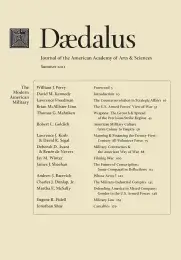Military Contractors & the American Way of War
Contractors are deeply intertwined with the American military and U.S. foreign policy. Over half of the personnel the United States has deployed in Iraq and Afghanistan since 2003 have been contractors. Their relationship with the U.S. government, the public, and domestic and international law differs from that of military personnel, and these differences pose both benefits and risks. America’s use of private military and security companies (PMSCs) can provide or enhance forces for global governance. Yet PMSCs can also be used to pursue agendas that do not have the support of American, international, or local publics. Thus far, the use of PMSCs has proved a mixed bag in terms of effectiveness, accountability, and American values. Moving forward in a way that maximizes the benefits of contractors and minimizes their risks will require careful management of the uncomfortable trade-offs these forces present.
More than one-half of the personnel the United States has deployed in Iraq and Afghanistan since 2003 have been contractors. Part of the global private military and security industry, contractors are deeply intertwined with the American military and U.S. foreign policy.1 Whatever one chooses to call them–mercenaries, contractors, or private military and security companies (PMSCs)–they have a different relationship to the U.S. government, the American public, and domestic and international law than do military personnel. These differences pose both benefits and risks to the effectiveness, accountability, and values represented in American actions abroad.
In the best case, American use of PMSCs can provide or enhance forces for global governance. PMSCs can recruit from around the world to quickly mobilize expertise as needed. If their employees are instilled with professional values and skills and engaged in a way that is responsive to the demands of the U.S. public, the international community, and local concerns, these forces could contribute to . . .
